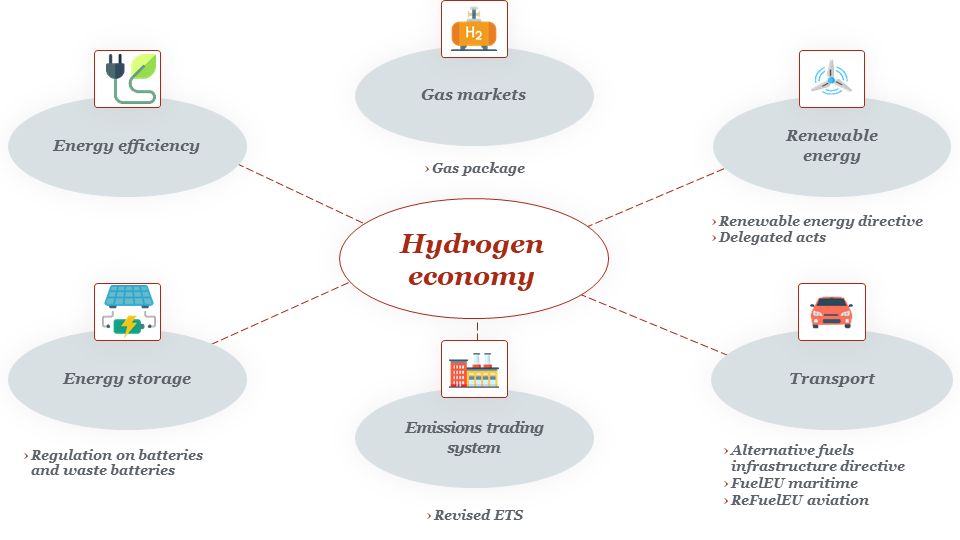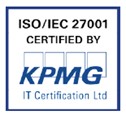Latest Developments in Hydrogen Regulation
28 August 2023
Authors: Meri-Katriina Pyhäranta and Julia Ranta
A couple of months ago in one of their hydrogen posts (only in Finnish), Meri-Katriina Pyhäranta and Julia Ranta wrote that one of the most important things holding back investments into the hydrogen sector was the lack of regulation. This was the message that was consistently shared in industry-specific events. Quite a lot has happened since then, and overall, the extensive regulatory framework guiding the hydrogen and power-to-x economy is finally taking shape.
Here’s a short (and a simplified) summary of the status quo:
Proposal for amending the Renewable Energy Directive (RED II): defines new targets for renewable energy in specific sectors (e.g. transport and industry) and overall energy consumption in the EU. Subject to the approval of the Parliament.
RED II-based delegated acts: define the requirements for the production of renewable hydrogen and other RFNBOs, as well as the methodology for calculating GHG emissions savings from RFNBOs and recycled carbon fuels. Entered into force in July, directly applicable in Member States.
Gas Package: a proposal for a regulation and a directive that would govern the common internal market rules for renewable and natural gases and hydrogen. Subject to the approval of the Parliament and the Council.
Alternative Fuel Infrastructure Regulation (AFIR): establishes an obligation for Member States to deploy recharging and refuelling stations (such as hydrogen refuelling stations) for alternative fuels. Will enter into force later in the autumn, directly applicable in Member States.
FuelEU Maritime Initiative: the regulation on the use of renewable and low-carbon fuels in maritime transport increases the demand for renewable and low-carbon fuels and reduces the greenhouse gas emissions from the shipping sector. Includes a special incentive regime to support the deployment of RFNBOs. Will enter into force later in the autumn, directly applicable in Member States as of January 2025.
ReFuelEU Aviation Initiative: a proposal to decarbonise the aviation sector and to increase demand for and supply of sustainable aviation fuels (SAF). Subject to the approval of the Parliament and the Council.
Regulation on Batteries: regulates the entire life cycle of batteries from production to reuse and recycling. Applicable to all batteries, including industrial batteries used in energy production. Entered into force in August, directly applicable in Member States as of 18 February 2024.
Emission Trading System (ETS): the amendment to the existing directive includes new rules to extend the scope of the ETS to cover maritime transport and to create a new self-standing ETS for buildings, road transport, and fuels for additional sectors. Certain emission-free plants and small hydrogen production plants will also be included in the ETS. Such plants are eligible for the free allocation of emission allowances. Amendments to the directive have entered into force and will be applicable in Member States as of January 2024 (subject to national implementation).
Energy Efficiency Directive: reduces final energy consumption at the EU level. All Member States will contribute to achieving the overall EU target in accordance with their indicative national contributions and trajectories towards reaching the target in their integrated national energy and climate plans. Will enter into force later in the autumn. The increasing energy consumption required by the renewable hydrogen production is not recognised in the Energy Efficiency Directive but will hopefully be considered in the national implementation.

Something essential missing? Yes, at least a more detailed strategy and regulation concerning carbon capture, utilisation, and storage, all of which also play an essential role in RFNBO production. A public hearing (“call for evidence”) is currently ongoing in the European Commission.
Anything else to keep an eye on? Here’s what Meri-Katriina and Julia consider particularly topical:
Meri-Katriina: The logic and rationale behind the Gas Package is familiar from the existing natural gas market regulation. What will be interesting to see though is how well the new Gas Package and the regulatory model can be applied to a hydrogen market that is only emerging. How, for example, will the regulation concerning the hydrogen infrastructure work in practice when the number of market participants using the pipeline infrastructure will not at first be at the level the infrastructure is planned for?
Julia: The Commission has clarified certain requirements of the RFNBO-related delegated acts by publishing a Q&A document answering certain questions raised by the stakeholders. Although the answers provided by the Commission are not a binding interpretation of the EU legislation, they provide valuable insight into the market players in respect of the implementation of the regulatory requirements. The Commission’s Q&A document can be found here.






